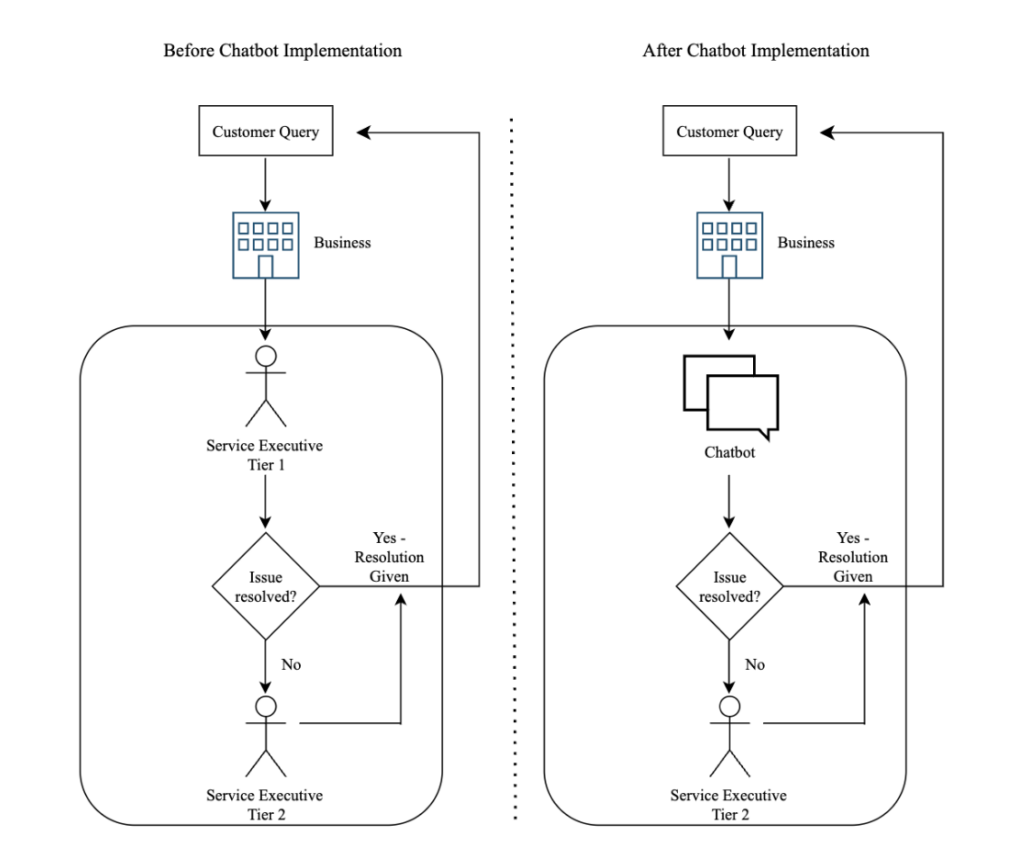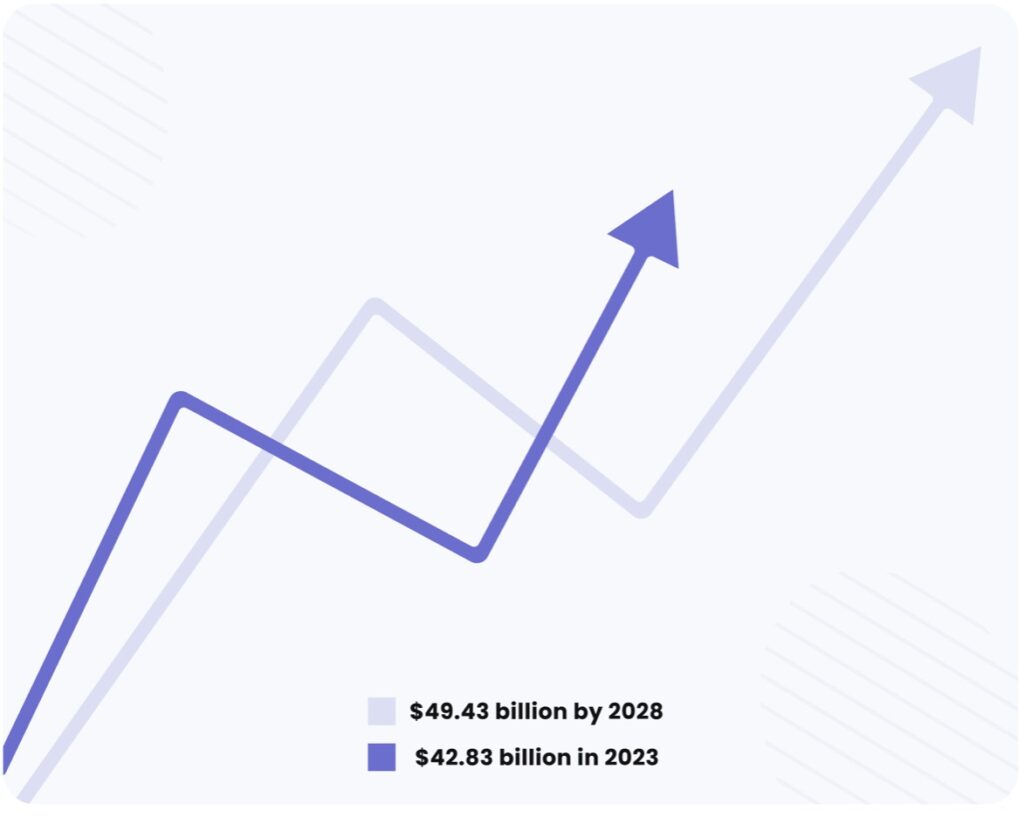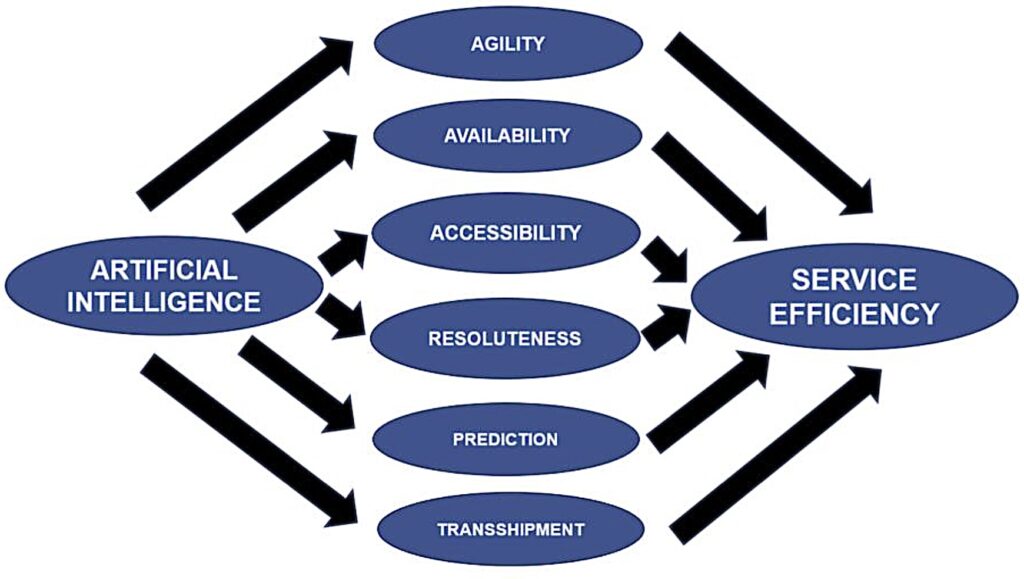In the rapidly evolving fintech landscape, Artificial Intelligence (AI) is revolutionizing customer support. Advanced tools like chatbots and virtual assistants are now essential to the industry’s operations, dramatically enhancing efficiency. These AI technologies manage multiple customer queries simultaneously, reducing response times and improving with each interaction, increasing the accuracy and personalization of responses. This integration of AI is transforming how customer service is delivered, setting new standards for efficiency and effectiveness in the fintech sector.
I. The Evolution of Customer Support in Fintech
Historical Context
The journey of fintech began long before the digital age, tracing its roots back to the late 19th century when financial transactions were first facilitated by telegrams and Morse code (The Payments Association, 2020). This marked the beginning of financial technology, which evolved significantly with the rise of online banking. Today, while large banks have digitized many core processes, there remains substantial potential for further optimization in the industry.
Challenges Faced
Fintech companies face many challenges today, with establishing trust and credibility with their customers paramount. In an era where data breaches are common, ensuring data security has become a crucial concern for companies engaged in mobile banking, payment apps, and other fintech services. Additionally, navigating the complex web of government regulations poses another significant challenge for the industry.
Role of Technology
AI stands out as a transformative force in fintech, poised to generate up to $1 trillion in additional value annually for the global banking sector (Fong et al., 2021). Its extensive applications reach all operational spectrums from front to back office. Financial institutions are encouraged to leverage their in-house expertise and existing systems to maximize the inherent value of AI, creating solutions that enhance their operational efficiencies and service offerings.
II. Understanding AI in Customer Support


AI in fintech customer support utilizes advanced technologies such as Natural Language Processing (NLP) and machine learning to enhance interaction and service delivery. Here’s a closer look:
- AI, Chatbots, and Virtual Assistants Defined: AI refers to systems or machines that mimic human intelligence to perform tasks and can iteratively improve themselves based on the information they collect. Chatbots are AI systems that can interact with users via textual methods, while virtual assistants are more advanced and often capable of understanding and executing voice commands.
- How AI Works in Fintech: AI tools analyze large volumes of data to learn from patterns and user interactions. This capability allows them to handle common queries quickly and accurately and escalate more complex issues to human operators.
- Examples of AI Applications: In fintech, AI-driven chatbots assist customers with transaction inquiries, account management, and fraud alerts, significantly reducing the need for human customer service representatives.
III. Benefits of AI-Driven Customer Support


Implementing AI in customer support offers multiple advantages:
- Scalability: AI systems can handle thousands of interactions simultaneously.
- Availability: They provide round-the-clock service.
- Cost Efficiency: AI can reduce customer support costs by up to 30%, contributing to estimated global savings of $7.3 billion by 2023.
- Personalization: AI can tailor interactions based on customer data, enhancing the user experience.
IV. Challenges and Limitations
Despite its benefits, AI integration in customer support faces several challenges:
- Privacy Concerns: Collecting and analyzing vast user data raises significant privacy issues.
- Integration Complexities: Integrating AI systems with existing customer support frameworks can be challenging.
- User Expectations: There is often a gap between AI systems’ capabilities and users’ expectations, particularly in complex or sensitive situations.
V. Market Growth and Economic Impact


Figure 2: AI in the FinTech Industry Market Size (Francis, 2023)
The AI fintech market is expected to grow to nearly $31 billion by 2027, driven by the increased adoption of AI technologies that facilitate personalized customer service and advanced analytics to understand consumer behavior better. The integration of AI is anticipated to boost economic growth by 26% and increase revenue in financial services by 34% (My et al., 2022). Moreover, businesses are projected to save over $10.4 billion by 2027 through AI-powered fraud detection and prevention systems, enhancing the efficiency of financial transactions and significantly reducing the incidence of costly financial fraud.
VI. Case Studies in AI Implementation in Fintech


Enova: Revolutionizing Credit Assessments with AI
Enova stands out in the fintech landscape for its strategic application of AI and machine learning technologies to refine financial analytics and credit assessments. This approach has significantly improved Enova’s decision-making processes, enabling more accurate and rapid credit evaluations. By integrating AI into their systems, Enova has processed vast amounts of data efficiently, identifying patterns and insights that would be challenging for human analysts to detect. This capability allows for more nuanced risk assessments and has enhanced their ability to offer tailored financial solutions to customers, thereby reducing defaults and increasing loan performance.
Ocrolus: Enhancing Document Processing Accuracy with AI
Ocrolus has harnessed the power of machine learning combined with human verification to revolutionize the processing of financial documents. This dual approach ensures that the speed of automated processes benefits from the accuracy of human oversight. Ocrolus’s technology analyzes complex financial documents quickly and precisely, reducing the time required for data verification and input. This accelerates the document processing cycle and drastically cuts down on errors, providing fintech companies with reliable data for making informed decisions faster.
Impact on Operational Efficiency


Figure 4: The Multifaceted Impact of AI on Service Efficiency in Fintech (Andrade and Tumelero, 2022)
These case studies illustrate AI’s profound impact on operational efficiency within fintech companies. By automating and enhancing traditional processes, AI technologies like those implemented by Enova and Ocrolus break down longstanding barriers to efficiency and accuracy. The critical benefits observed include:
- Enhanced Speed: Enova and Ocrolus have significantly accelerated their operational processes, enabling faster response times and improved customer service.
- Increased Accuracy: AI’s ability to learn and adapt has resulted in higher accuracy in credit assessments and financial document processing, minimizing risks and errors.
- Improved Decision-Making: With AI, these companies can handle more complex data sets and extract meaningful insights, leading to better-informed business decisions and increased profitability.
The integration of AI in fintech streamlines operations and offers substantial improvements in how financial services manage data and make decisions. These advancements are crucial as the industry continues to evolve towards more automated and user-centric financial services.
VII. Future Trends and Predictions
Economic Impact of AI in Fintech
The financial technology sector is witnessing a remarkable transformation fueled by Artificial Intelligence (AI) integration. With the global AI fintech market anticipated to reach $26.67 billion by 2026 and flourishing at a Compound Annual Growth Rate (CAGR) of 23.37% from 2021 to 2026, the economic implications are substantial (DataArt, 2023).
AI’s infusion into fintech has been a game-changer, yielding significant benefits such as substantial operational cost reductions, enhanced decision-making precision, and superior customer engagement. These advancements are not merely incremental; they represent profound shifts in how financial operations are executed and how customers interact with financial services.


Innovative Applications of AI in Fintech
The spectrum of AI applications within fintech spans several core areas:
- Fraud and Risk Management: Machine learning algorithms stand at the forefront of this domain, scrutinizing transaction patterns with a keen eye for anomalies and potential fraudulent activities. These algorithms operate with remarkable accuracy and in real-time, offering a predictive edge to risk management strategies.
- Customer Experience and Support: AI revolutionizes customer service by providing personalized support and sophisticated user interfaces, reshaping customer expectations and satisfaction levels.
- Asset and Wealth Management: AI’s predictive analytics and personalized investment algorithms provide individual investors with tools and insights once reserved for large financial institutions, democratizing access to sophisticated asset management.
Security Enhancements through AI in Fintech
Regarding security, AI has established itself as a formidable deterrent against financial fraud. It meticulously reviews vast quantities of transactional data to uncover patterns and potential risks invisible to the human eye. AI’s real-time ability to detect and respond to suspicious activities reinforces the security framework for financial transactions.
Furthermore, the integration of AI with blockchain technology ushers in a new paradigm of security. The combination of blockchain’s immutable record-keeping and AI’s dynamic analytical prowess creates a fortified environment for executing and recording transactions.
This technological synergy sets new benchmarks for transactional security, enabling trust and transparency at unprecedented levels. It also exemplifies how continuous innovation in AI applications is enhancing existing processes and actively forging new paths for the financial sector to follow.


VIII. Embracing the Future: Pioneering AI Integration in Fintech
As AI continues to advance, its integration into fintech will become more critical, not just for staying competitive but for redefining customer service standards and operational efficiency.
To tap into the transformative power of AI, it is imperative for fintech companies to explore innovative AI solutions that can enhance their operations and customer service. Recognized for our innovation with the prestigious Sao Khue Award for the Most Innovative Fintech Solution, VeryPay is transforming the landscape of digital transactions. Unlock the Potential of AI-Driven Customer Support with VeryPay by visiting our website. 🚀 Embrace AI with VeryPay and propel your fintech operations to new heights, ensuring a future where your business remains at the forefront of the financial services industry🌟
Reference list
Andrade, I.M.D. and Tumelero, C. (2022). Increasing Customer Service Efficiency through Artificial Intelligence Chatbot. Revista de Gestão, [online] 29(3). doi:https://doi.org/10.1108/rege-07-2021-0120.
DataArt (2023). Artificial Intelligence and Machine Learning – How Do They Transform the Fintech Industry. [online] www.dataart.com. Available at: https://www.dataart.com/blog/7-ways-how-ai-is-transforming-the-fintech-industry.
Fong, D., Han, F., Liu, L., Qu, J. and Shek, A. (2021). Seven technologies shaping the future of fintech | McKinsey. [online] www.mckinsey.com. Available at: https://www.mckinsey.com/cn/our-insights/our-insights/seven-technologies-shaping-the-future-of-fintech.
Francis, P. (2023). AI in FinTech in 2023: 7 Ways AI Is Revolutionizing the Industry. [online] Uvik. Available at: https://uvik.net/blog/ai-in-fintech/.
Juniper Research (2019). Bank Cost Savings via Chatbots to Reach $7.3 Billion by 2023, as Automated Customer Experience Evolv. [online] www.juniperresearch.com. Available at: https://www.juniperresearch.com/press/bank-cost-savings-via-chatbots-reach-7-3bn-2023.
Karan Singh, S. and Kaur Dhillon, L. (2023). AI, BLOCKCHAIN, AND MACHINE LEARNING IN FINANCE: A COMPARATIVE ANALYSIS OF FINTECH AND NON-TECH FINANCE APPROACHES.
My, T., Pham, N., Ngoc, T., Pham, T., Phuong, H., Nguyen, T., Ly, B., Nguyen, L., Su, H. and Le, S. (2022). An Application of RASA Technology to Design an AI Virtual Assistant: A Case of Learning Finance and Banking Terms in Vietnamese*. Journal of Asian Finance, 9(5), pp.273-0283. doi:https://doi.org/10.13106/jafeb.2022.vol9.no5.0273.
The Payments Association (2020). Fintech: the History and Future of Financial Technology – the Payments Association. [online] The Payments Association. Available at: https://thepaymentsassociation.org/article/fintech-the-history-and-future-of-financial-technology/.



